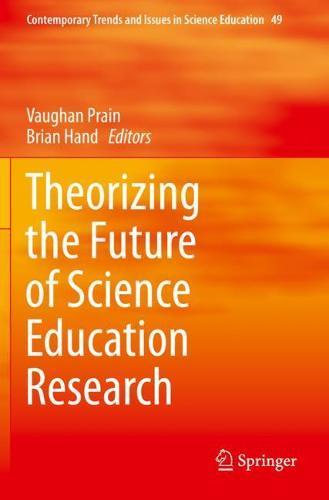Overview
This book reviews the current state of theoretical accounts of the what and how of science learning in schools. The book starts out by presenting big-picture perspectives on key issues. In these first chapters, it focuses on the range of resources students need to acquire and refine to become successful learners. It examines meaningful learner purposes and processes for doing science, and structural supports to optimize cognitive engagement and success. Subsequent chapters address how particular purposes, resources and experiences can be conceptualized as the basis to understand current practices. They also show how future learning opportunities should be designed, lived and reviewed to promote student engagement/learning. Specific topics include insights from neuro-imaging, actor-network theory, the role of reasoning in claim-making for learning in science, and development of disciplinary literacies, including writing and multi-modal meaning-making. All together the book offers leads to science educators on theoretical perspectives that have yielded valuable insights into science learning. In addition, it proposes new agendas to guide future practices and research in this subject.
Full Product Details
Author: Vaughan Prain ,
Brian Hand
Publisher: Springer Nature Switzerland AG
Imprint: Springer Nature Switzerland AG
Edition: 2019 ed.
Volume: 49
Weight: 0.454kg
ISBN: 9783030240158
ISBN 10: 3030240150
Pages: 196
Publication Date: 05 November 2020
Audience:
Professional and scholarly
,
Professional & Vocational
Format: Paperback
Publisher's Status: Active
Availability: Manufactured on demand

We will order this item for you from a manufactured on demand supplier.
Reviews
The book is well organized and structured. ... the book proposes ... a huge amount of new experimental data, many new interesting ideas, and solutions ... . the book may be recommended as an excellent resource and background for further studies for a wide range of scientists in fields of education, cognitive and social psychology, and cultural, social, and crisis anthropology, as well as for experts and policymakers in education, who are involved in the strategic planning of science education. (Yuriy Kostyuchenko, Victor Pushkar and Mohamed Abioui, Science & Education, Vol. 30, 2021)
“The book is well organized and structured. … the book proposes … a huge amount of new experimental data, many new interesting ideas, and solutions … . the book may be recommended as an excellent resource and background for further studies for a wide range of scientists in fields of education, cognitive and social psychology, and cultural, social, and crisis anthropology, as well as for experts and policymakers in education, who are involved in the strategic planning of science education.” (Yuriy Kostyuchenko, Victor Pushkar and Mohamed Abioui, Science & Education, Vol. 30, 2021)
Author Information
Vaughan Prain is a Professor in Science Interdisciplinary Education Research, Deakin University, Australia. His research focus is on innovative teaching and learning approaches in primary and secondary science. Initially he focused on the role of writing for learning, and more recently on students engaging with representational affordances within and across visual, spatial, linguistic, mathematical and embodied modes in constructing accounts of scientific processes and claims. Brian Hand is a Distinguished Professor of Science Education at the University of Iowa. He started his career as a chemistry and physics teacher (11 years) before moving into higher education. He has developed a strong research interest in writing and science argument. His focus has been on implementing the Science Writing Heuristic approach to learning for which he has been able to get a series of major grants to explore classroom implementation of the approach.



